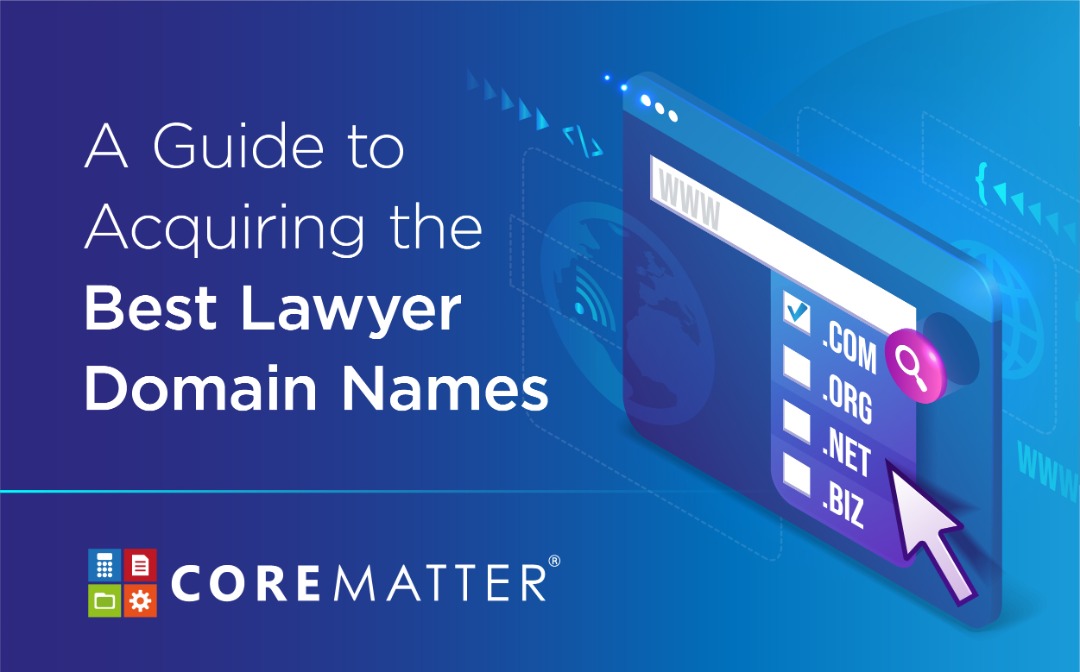
Make the Switch from Premise-based Legal Software to the Cloud
When opting for the best legal solutions for your legal firm, one should weigh in on the pros and cons of the available options. Moving to a cloud software like CoreMatter can prove to be more valuable than you will ever think.
As the world reels in with the new normal, law firms and practices around the world have steadily moved their operations virtually. And while continuing to meet the needs of their clients, they too have to address a new set of challenges presented to them since the pandemic occurred.
It is undeniable that law firms are feeling strained in one way or another, though some law firms are indeed more equipped than the others in the current virtual reality environment. A lot of the legal workflows and communication processes have been expected to be carried out as normal – so this is where cloud storage systems play an important role. Cloud software for law firms is gradually being adopted to them now more than ever before, since it helps with business continuity. But what about those who are still keen to use on-premises software?
Let’s dive deeper into some of the key differences between on-premises vs. in the cloud debate.
What Is On-Premises Practice Management Software?
On-premises practice management software is known for the control and privacy it gives law firms over their data. They offer helpful features like the ones available in the Cloud software, but the former is not accessible on the internet and instead runs on a server in the office. With that being said, it comes at a price: the cost of a server and its ongoing maintenance could well run up to a few thousand dollars each year.
But in recent years, the skepticism about the security of cloud computing has gradually faded, and now it is widely accepted. Cloud environments are just as secure – if not more secure – than on-premises ones.
What Is Cloud Practice Management Software?
Online law practice management software, or in the cloud as they call it, provides helpful features for lawyers to manage. And it’s easy to use them too:
- Contacts and matters
- Calendar and emails
- Client interactions
- Document management and creation
- Intake processes and templates
- Time-tracking and expenses
- Custom billing rules and profiles
- Task management and automation
Law firms can access these features with ease, either from their working laptop or on mobile. CoreMatter provides subscriptions that can be billed monthly.
The Pros and Cons of Law Practice Management Solutions
When evaluating and implementing new technology solutions – or even considering one – it’s better to weigh the pros and cons for each of the solutions. The main goal is to see if the following are promised in whichever solution you have chosen for the firm: reliability, accessibility, security and mobility, among others. Here, we take a look at the pros and cons of each solution.
On-Premises
Pros
- Tax savings: Hardware and staffing expenses to maintain an on-premises environment could be categorised as capital expenditures, which have a positive impact on taxes.
- Control over data: If a law firm can put together a skilled IT team, not only will it create a secure infrastructure, but they would also have direct control over their client’s data.
Cons
- Maintaining on-premises infrastructure: In the long term, only large firms have the scale to justify the costs required to maintain an on-premises infrastructure.
- Updating outdated technology: Most servers need to be replaced every few years, costing thousands of dollars (probably at the very least) to upgrade and maintain.
- Responsibility over data: Law firms are solely responsible for their IT security with on-premises software. So if there’s a data breach or damage to servers, law firms need to resolve these issues themselves, which could slow down the overall productivity.
- Inconvenience of remote access: Accessing on-premises software via remote desktop tools would tend to be more inconvenient and significantly slower than its cloud-based counterparts.
On the cloud
Pros
- Little upfront investment required: Law firms can adjust their plans to fit their needs at any given time.
- Data backups: Cloud infrastructure is redundant. If one server goes down, the data would be backed up in a different physical location.
- Accessibility: Cloud-based software is accessible anywhere and anytime and is very user-friendly.
- Unlimited data processing: With virtually unlimited data and processing capabilities, firms don’t need to worry about outgrowing their software or infrastructure.
Cons
- Sudden changes to software: Software updates changes every time it matures, so it could be difficult to be up-to-date with it. Clear documentation and training resources from the software provider help employees adapt to updates, though.
The Cloud and the Legal Profession
Truth be told, cloud computing is already everywhere in the legal sector. According to the 2016 Skyhigh Networks Cloud Adoption and Risk Report, the average large company uses 2,033 distinct cloud services; law firm employees, on average, use 56 different cloud services.
From the clients’ perspective, lawyers have an obligation to make their services efficient, convenient and cost effective. This is usually an ongoing obligation that requires lawyers to constantly reassess if they are complying with the way they manage their practices. So, it should not come as a surprise that efficiency, convenience and cost effectiveness are at the heart of all innovations across the legal landscape.
As lawyers become increasingly mobile, especially during this pandemic, law-firm data can be – and should be – readily available on tablets and smartphones. Rather than looking for different software providers that address each of these needs, adopting a comprehensive solution like CoreMatter lets you manage all of these functionalities from one software platform.
—
CoreMatter, the leading cloud-based case management tool in SE Asia, frees your firm from the mess of the mundane to focus on what matters most. Sign up today and receive one FREE MONTH of service!


